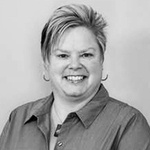Question
Can you please review the required assessment and reassessment dates as well as who can perform them?
Answer
The required reassessments are at therapy visit numbers 13 and 19. If multiple services are involved, at this point, guidelines state that it should be close to [the 13th and 19th visits]. So in other words, if PT and OT are both in a home, then we are working on the range of 11 - 13 and 17 - 19. Now, that will be further defined - and clearly defined - for multiple therapies in the upcoming finalization of the PPS 2012 rule. The 13th and 19th visits are therapy counts (the counted number of total visits for all disciplines together) and are episode specific. When we start a new episode of care, we start that count again.
We also have a 30 day reassessment. The 30 day reassessment means that we should not go greater than 30 days from our last assessment without reassessing the patient. In other words, if we evaluate the patient on day 1 of the episode and do visit 13 on day 22, we don't have to go back out and do a reassessment by day 30. Day 22 was the reassessment. We reset the reassessment clock at that point, and now we have until day 52 to go back out and reassess that patient.
The 30 day reassessment is not episode specific. The biggest discrimination between the two is that 13 and 19 are visit count episode specific. They start over with a new episode or a new 60 day period of care. The 30 day is a continuing count. As long as you have that person on your service, you cannot go greater than a 30 day period of time without a reassessment for all of the disciplines that are in.
Who must do them? Medicare calls it a qualified therapist. That's doesn't mean assistants are unqualified, it just means that they want an evaluating therapist to do them - a PT, OT or SLP. Assistants are unable to do the mandatory reassessments.

